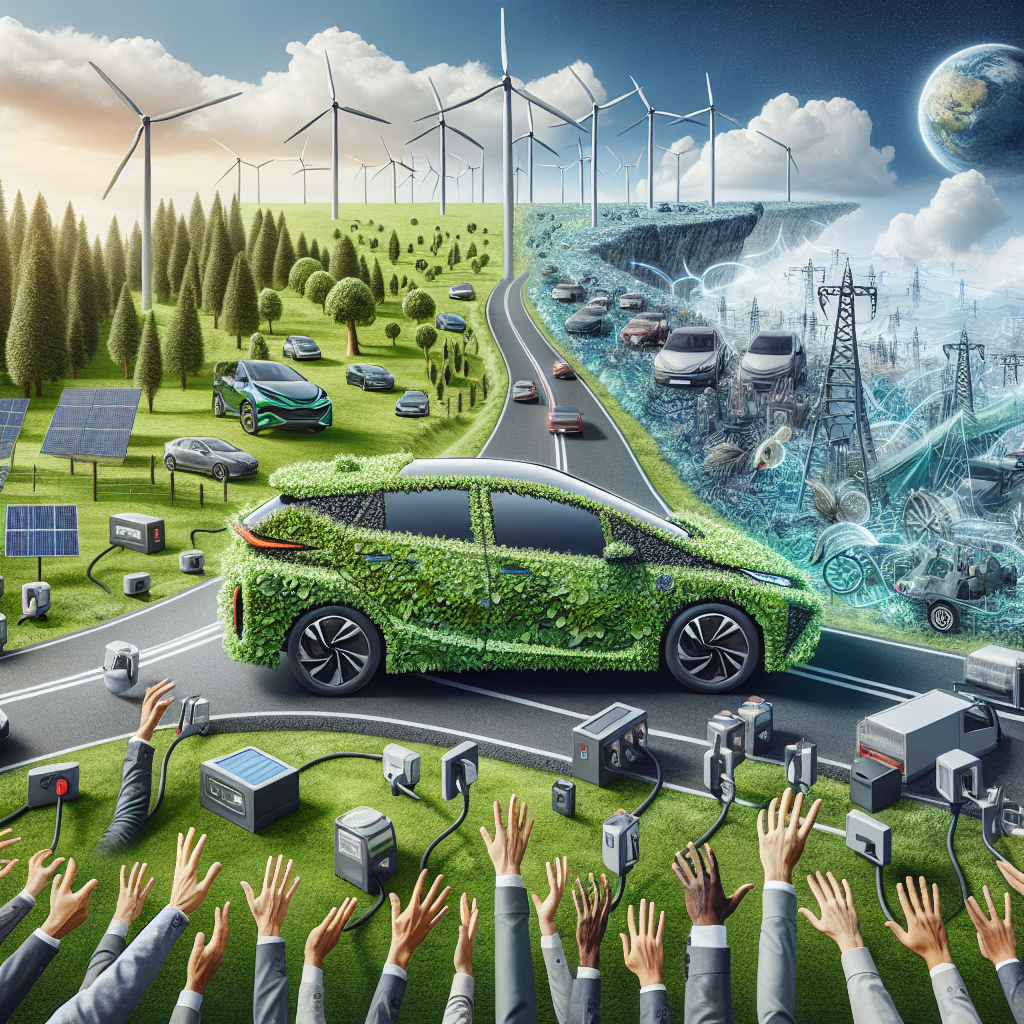
The Green Revolution: How Sustainability is Driving Automotive Innovation
Welcome to our in-depth exploration of the Green Revolution and its impact on automotive innovation. In recent years, the automotive industry has undergone a significant transformation driven by the growing emphasis on sustainability. This revolution is not only changing the way cars are designed and manufactured but also reshaping consumer preferences and industry trends.
Environmental Concerns Driving Innovation
The rise in environmental awareness and concerns over climate change have pushed automakers to reevaluate their practices and products. The push for sustainability has led to the development of electric vehicles, hybrid technologies, and alternative fuels. These innovations are not only reducing carbon emissions but also promoting a cleaner and greener future for transportation.
Example: Tesla’s Impact
One of the most prominent examples of sustainability driving automotive innovation is Tesla. The company’s focus on electric vehicles has revolutionized the industry and set a new standard for eco-friendly transportation. Tesla’s success has inspired other automakers to invest in electric vehicle technologies and accelerate the transition to a sustainable mobility future.
Technological Advancements in Sustainable Vehicles
Advancements in technology have played a crucial role in making sustainable vehicles more accessible and efficient. From improved battery technologies to smarter transportation systems, these innovations are reshaping the automotive landscape. Automakers are now exploring options like self-driving cars and connected vehicles to further reduce environmental impacts.
Case Study: Toyota’s Hybrid Success
Toyota’s success with hybrid vehicles, such as the Prius, showcases how sustainable technologies can drive innovation and market success. The company’s commitment to reducing emissions and improving fuel efficiency has made hybrid cars a mainstream choice for eco-conscious consumers. Toyota’s continued investment in sustainable technologies has positioned them as a leader in the automotive industry.
Supply Chain and Manufacturing Sustainability
As the demand for sustainable vehicles grows, automakers are also focusing on making their supply chains and manufacturing processes more environmentally friendly. Companies are adopting circular economy practices, reducing waste, and sourcing materials responsibly to lower their carbon footprint. Sustainable manufacturing practices are not only benefiting the environment but also improving efficiency and reducing costs.
Example: Ford’s Sustainable Practices
Ford has made significant strides in sustainability by incorporating eco-friendly materials and practices into their manufacturing processes. The company’s focus on reducing water usage, energy consumption, and waste generation has not only made their operations more sustainable but has also resonated with environmentally conscious consumers. Ford’s commitment to sustainability demonstrates how automakers can drive positive change beyond just vehicle design.
Frequently Asked Questions
Q: How are electric vehicles impacting the automotive industry?
Electric vehicles are revolutionizing the automotive industry by offering a clean and efficient alternative to traditional gasoline-powered cars. The growing popularity of electric vehicles is prompting automakers to invest in sustainable technologies and infrastructure, leading to a shift towards a greener transportation future.
Q: What role do consumers play in driving automotive sustainability?
Consumers have a significant impact on automotive sustainability through their purchasing choices and preferences. As more consumers prioritize sustainability and environmental responsibility, automakers are compelled to meet these demands by offering eco-friendly vehicles and adopting sustainable practices throughout their operations.
Conclusion
In conclusion, the Green Revolution is fundamentally transforming the automotive industry by driving innovation, sustainability, and technological advancement. From electric vehicles to sustainable manufacturing practices, automakers are embracing a cleaner and greener future for transportation. As sustainability continues to be a key focus for the industry, we can expect further advancements and developments that prioritize environmental responsibility and drive positive change for the planet.






